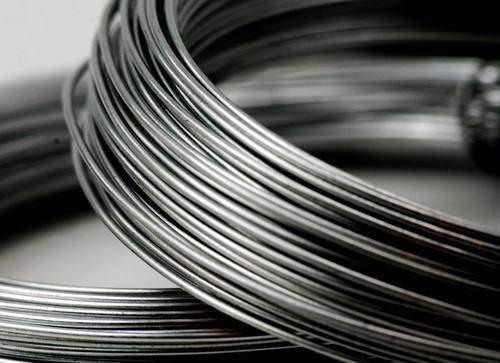
Choosing the Right Spring Material for Your Application
Posted on: 18 Jun, 2025
When it comes to manufacturing durable, high-performance springs, material selection is one of the most critical decisions. The right spring material impacts not only the strength and flexibility of the component but also its resistance to wear, corrosion, and environmental conditions.
At Ranoson, we specialize in custom spring manufacturing for industries ranging from automotive to electrical and appliances. In this guide, we’ll walk you through how to select the ideal spring material for your application—and why that matters for your product’s longevity and performance.
Why Material Choice Matters
A spring’s primary job is to store and release energy repeatedly. The material needs to withstand repeated stresses without breaking, deforming, or corroding. The wrong material can lead to failures, expensive recalls, or reduced product life.
By understanding the key properties of various spring materials, OEMs and sourcing teams can make smarter choices that save costs in the long run.
Common Spring Materials and Their Applications
1️⃣ Stainless Steel
Best for: Corrosion-prone environments, electricals, medical devices
Why choose it:
- Excellent corrosion resistance
- Good strength and flexibility
- Suitable for outdoor or moist environments
- Common Grades: 302, 304, 316 (316 is superior for marine or chemical exposure)
Example: Electrical connectors, outdoor equipment, appliance components.
2️⃣ Carbon Steel (High Carbon & Oil Tempered)
Best for: Automotive, mechanical applications, heavy loads
Why choose it:
- High tensile strength
- Economical
- Performs well in dry environments
Example: Suspension systems, levers, machinery parts.
3️⃣ Alloy Steel
Best for: Heavy-duty, high-stress environments
Why choose it:
- Superior strength and fatigue resistance
- Often used in high-load or shock-absorbing applications
- Can be heat treated for added performance
Example: High-load automotive applications, industrial machinery.
4️⃣ Phosphor Bronze & Beryllium Copper
Best for: Electrical and electronic components
Why choose it:
- High conductivity (especially Beryllium Copper)
- Excellent corrosion resistance
- Superior wear resistance
Example: Electrical contacts, precision connectors, battery assemblies.
How to Choose the Right Spring Material
Choosing the right material depends on three main factors:
- Environment – Will the spring be exposed to moisture, chemicals, or extreme temperatures? Choose corrosion-resistant materials for harsh environments.
- Mechanical Requirements – How much force, stress, or cycles will the spring endure? Alloy steels may be best for high-stress needs.
- Cost vs. Performance – Sometimes a slightly higher material cost leads to significant long-term savings by reducing maintenance and failure risks.
Why Ranoson?
At Ranoson, we don’t just manufacture springs—we engineer them for your success. We help OEMs and Tier 1 suppliers select the ideal material and design for long-term durability and maximum performance.
✔ Expert guidance in material selection
✔ Precision manufacturing with stringent quality checks
✔ ISO 9001:2015 certified processes
Let’s Build Better—Together
Choosing the right spring material isn’t just a technical choice—it’s a strategic one. Let us help you accelerate your growth with springs that last.
📧 sales@ranoson.co.in
📞 +91 7895010088 | +91 7217013190
🌐 www.ranoson.co.in
